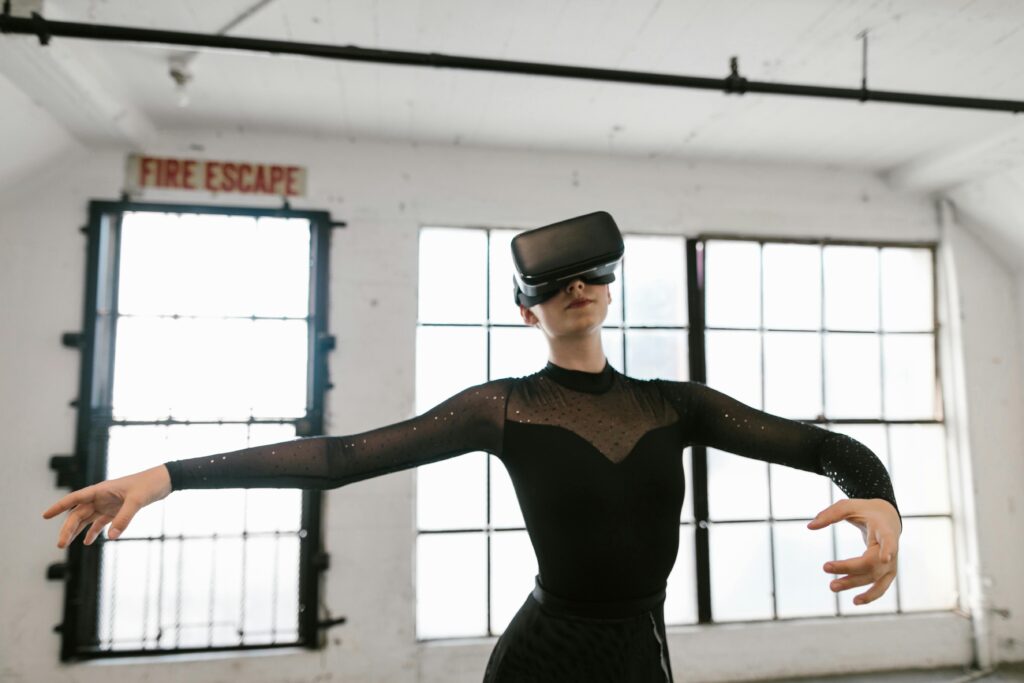
What is reality?
Us humans have been questioning reality in one form or another for several millennia, quite possibly since we obtained the ability to question such a fundamental aspect of our existence.

It appears that we have always carried with us an innate sense that things are not quite as they seem; an uneasy feeling that, when we stop and think about it, things just don’t feel right. For much of human existence, we have been able to answer many of our awkward questions through our ability to conjure up Gods, in one form or another. Imagined deities that have the ultimate power to satisfy most of our most fundamental curiosities. However, as science has slowly pushed God’s guiding hand out of our grip, pushed us out into the ‘real world’, and told us that it’s time we stood on our own two feet, the sense of unease with what we have come to define as reality remains. Some may argue that it has only intensified.
| Cold science
Whilst it would be hard to deny the impact that science has had on our understanding of reality, it’s true to say that there are many, including myself, that are not entirely satisfied with where the science leads us. The notion that I am merely a collection of atoms that just happens to have formed in a particular way, as science would have me believe, is to my mind, at best, misguided, and at worst, downright insulting.
Of course, there will always be those who shrug their shoulders at the idea that I find scientific conclusions insulting, usually with a cliché such as not being able to argue with the science, but this, to me, is not science. It is an assumption, a belief, that, in the absence of clear, defined meaning, there simply is none. But that’s all it is. An assumption.

In every other aspect where science is yet to come up with answers, such as what was there before the Big Bang, what is dark matter, do extra dimensions exist, we are told that just because science doesn’t yet have the answers, it doesn’t mean there are none. We are told that science will eventually satisfy our curiosities. But when it comes to perhaps the most fundamental question of them all, that of the very meaning of existence, we are to believe that we are a mere collection of atoms that randomly assembled themselves to form a living human being. A human being with consciousness, but without meaning or purpose. Whilst I’m not denying that at a fundamental level, I do consist of matter formed from atoms, I refuse to be degraded into believing that this is all that I am.
For all of our technological and biological breakthroughs, the fact is that we are still very, very far away from having any concept of what consciousness actually is. Yes, atoms may stick together to eventually form matter, but how does that eventually lead to a fully conscious human brain? A brain that is aware of itself and its surroundings, with the ability to not only comprehend such intricacies as language but use the raw materials of its planet to take itself to the surface of another. I fail to comprehend the notion that a mere bunch of atoms, randomly clustering together, remarkably in just the right sequence – randomly of course – could be capable of such feats. The suggestion that nothing more than a bunch of atoms is capable of these remarkable achievements is so obnoxious that it only serves to highlight how thin the veil of human understanding truly is.
| What even is reality?
In one way, we can define reality as whatever it is that we experience, whether we are living in some kind of simulation, or it turns out we are simply a brain in a vat connected to electrical impulses. Whatever we experience as reality is reality, whatever form it may take. So why can’t we, or rather, I, just accept this? There can be no doubt that whenever and wherever we have taken the bold step to lift up the thin veneer that nature seems to want us to accept as reality and peer underneath, we find that what we assumed to be real is nothing of the sort. Let’s take our primary sense as humans, that of sight. A sense that relies on visible light to inform our consciousness of all that surrounds us, yet it constantly deceives us. Nature, as it turns out, has not been entirely forthcoming in only giving us the ability to sense a tiny slither of what the electromagnetic spectrum consists of. Science now has the ability to see things using waveforms of light such as infrared and microwaves that were previously hidden from us, light which reveals hidden truths and ultimately, deeper questions. When we peer out into the universe using these extra dimensions of light, it appears to be an entirely different beast.

Our senses tell us that the Earth is flat and that, as the universe appears to revolve around us, we must be at the centre of it. They tell us that what goes up must come down. They tell us that time passes at the same rate for everything everywhere in the universe. All of which have now been disproven. Even those very atoms that make up you and me are not what our senses tell us they are. They consist of even smaller particles which follow such bizarre laws of physics that we have a long way to go before we even begin to comprehend their nature. If you told a scientist just over a hundred years ago that there exist particles smaller than an atom which can be in two places at once, can be in many states at once, and only collapse into something with definite properties when observed, you’d have been laughed out of the lecture hall. And yet, here we are. Grappling with the realities of a reality that we understand less and less of with each major discovery.
| Subjective or objective
We have all, at some point, looked at a red flower, or a blue car, and wondered if others see the same hue as us when observing the same object. We then come to the logical conclusion that there is no way we can possibly tell. How does one even begin to go about describing a colour without using words that relate to colour? My blue could very well be your yellow. As far as I’m aware, whilst there are tests that can be carried out to determine if one is colourblind, there are no real, conclusive tests to determine what someone is actually seeing when they refer to a particular colour. So, even with something as basic and fundamental as the visible light spectrum, we have no idea if we experience it subjectively or objectively. Can we also say the same for reality itself?
The late, great movie director, Alfred Hitchcock, once devised an experiment to demonstrate how our senses are easily influenced by what we perceive as reality. He took some film of a man standing on the edge of a children’s playground. He was watching a young girl playing on the equipment, with a big smile on his face. Hitchcock overlayed some upbeat, cheerful music on the footage, and asked an audience what they thought they were looking at. Most replied that it looked like a happy, proud father, watching his beloved daughter play in the playground. He then took the exact same footage but overlayed it with sinister, creepy music. Naturally, he got a very different response when asking an audience what they thought they were looking at, with many adamant that the footage of the man had indeed changed, as the expression on his face was no longer that of someone smiling. It hadn’t, of course.

It was intended to be a demonstration of how a movie director can influence, control, and manipulate an audience so profoundly, just by making a minor alteration such as changing the background music. For me, however, we can take what he demonstrated and apply it to reality in general. During the outbreak of the pandemic back in mid-2020, a friend explained to me that he felt very uneasy when going outside, as he felt that there was an underlying sense of extreme unease within everyone he encountered, which made him feel anxious and paranoid within himself. Whilst he was probably somewhat correct in his assumptions – we were at the start of the biggest pandemic in living memory after all – I couldn’t help but question whether it really was the sense of anxiety he felt from others that was making him feel anxious within himself or was it perhaps the other way around. When we feel extreme emotion within ourselves, such as paranoia or anxiety, it is only natural to look at other people’s expressionless faces and see things that aren’t there. We witness an absence of expression and replace it with our own perceptions and assumptions, often based on what we are experiencing internally.
Of course, this neither proves nor disproves whether reality is indeed subjective or objective, but it does demonstrate quite clearly that if it is indeed objective, it is heavily influenced by our own subjective experiences. A person suffering extreme depression resides within the exact same reality as a person who has just won the lottery, but their experiences of it could not possibly be more different.
| Physical or mental
We have all heard the philosophical thought experiment; if a tree falls in the forest and no one was around to hear it, would it make a sound? It is an interesting concept, and for me, I think it all comes down to how one defines sound. If we define it as sound waves that travel through the air, then of course it still makes a sound. But if we define sound as only the time when those sound waves encounter a conscious entity which is able to absorb the sound and make sense of it, then no. It does not.
However, we can take the same notion and apply it to aspects of all of our senses. Would colour exist if no one was around to observe it? Would hot chillies be spicy if no one was around to taste them? Would the smell of fresh rain falling in a tropical forest exist if no one could smell it? Do these constructs exist as physical phenomena, or do they only exist when given meaning by a conscious mind that is able to experience and make sense of them? Does our consciousness create reality?

Quantum mechanics would suggest that this is indeed the case. When we see illustrations of an atom, we see the familiar diagram of a nucleus in the centre, with electrons and neutrons orbiting it, similar to planets in a solar system. However, this could not be further from the truth. In reality, the subatomic particles, be they electrons, neutrons, photons, quarks, or bosons, are not orbiting anything in the traditional sense. They are indeed everywhere, all at once, and in every possible state. They take on the properties of a waveform. This is called wave-particle duality. It is not until they are observed that they are forced to commit to being in one place, at one time, in one state. It’s important to note that when we say ‘observed’, we are not talking about looking at them directly. They are far too small for this to be possible. We are, instead, talking about the act of measuring them, which in turn, then forces them to take on physical properties.
When scientists were first coming to terms with this entirely new and ultimately bizarre aspect of reality back in the 1920s, even the great Albert Einstein famously questioned; Do you really believe that the moon is not there when you are not looking at it? The fact of the matter is, as bizarre as it sounds, quantum physics seems to suggest that this is, indeed, the case.
There is a famous photograph taken by the Hubble Space Telescope, called the Ultra Deep Field. Astronomers once decided to point the telescope at a dark patch of the sky and see what they could see. Before this, it was understood to be devoid of any stars or galaxies. However, they turned the telescope toward it and kept the shutter open for around eleven days, long enough to capture all available light reaching Earth from that region. To everyone’s astonishment, what emerged from the experiment was a photograph of some of the earliest galaxies in the known universe. Galaxies that are so far away, it is impossible for the human mind to even comprehend. But more to the point, they were galaxies that had never before been observed by human eyes. Ignoring the fact that we are seeing the galaxies as they were, billions of years ago when the light first began its trek across the vast, empty, lonely universe, and given what we know of quantum physics, one has to seriously question whether those galaxies even existed before we took a photo of them. Was the act of measuring their light, i.e., observing them, the catalyst which caused them to move from a state of non-existence into existence? Again, quantum physics suggests that this is indeed the case.
| Conclusion
The question of reality, what it is, how it is defined, perceived, and experienced, is an incredibly deep and complex question that has occupied many great minds over millennia. I have merely given the topic a light dusting in this article. It is one of those subjects that is often referred to as a rabbit hole, as the deeper one probes, the deeper one finds oneself. To question reality, in many ways, is to question our own existence and what it is to be conscious, whatever that is.
I began by talking about an unease that lies within many of us, an awkward feeling that there is something more to what we experience as living, breathing constructs of the universe. However, there remains the possibility that this is borne out of nothing more than a desire to seek out something that is not there. A desire for an alternative narrative. In many ways, the pursuit of a deeper meaning for reality hinges on similar mindsets carried by conspiracy theorists and the fundamentally religious. A refusal to accept at face value that what is presented to us is all that there is.
This would, of course, be a reasonable conclusion if it were not for the overwhelming scientific evidence that reality does indeed evade our senses, assumptions, and logic from almost every perspective that we care to study it.


